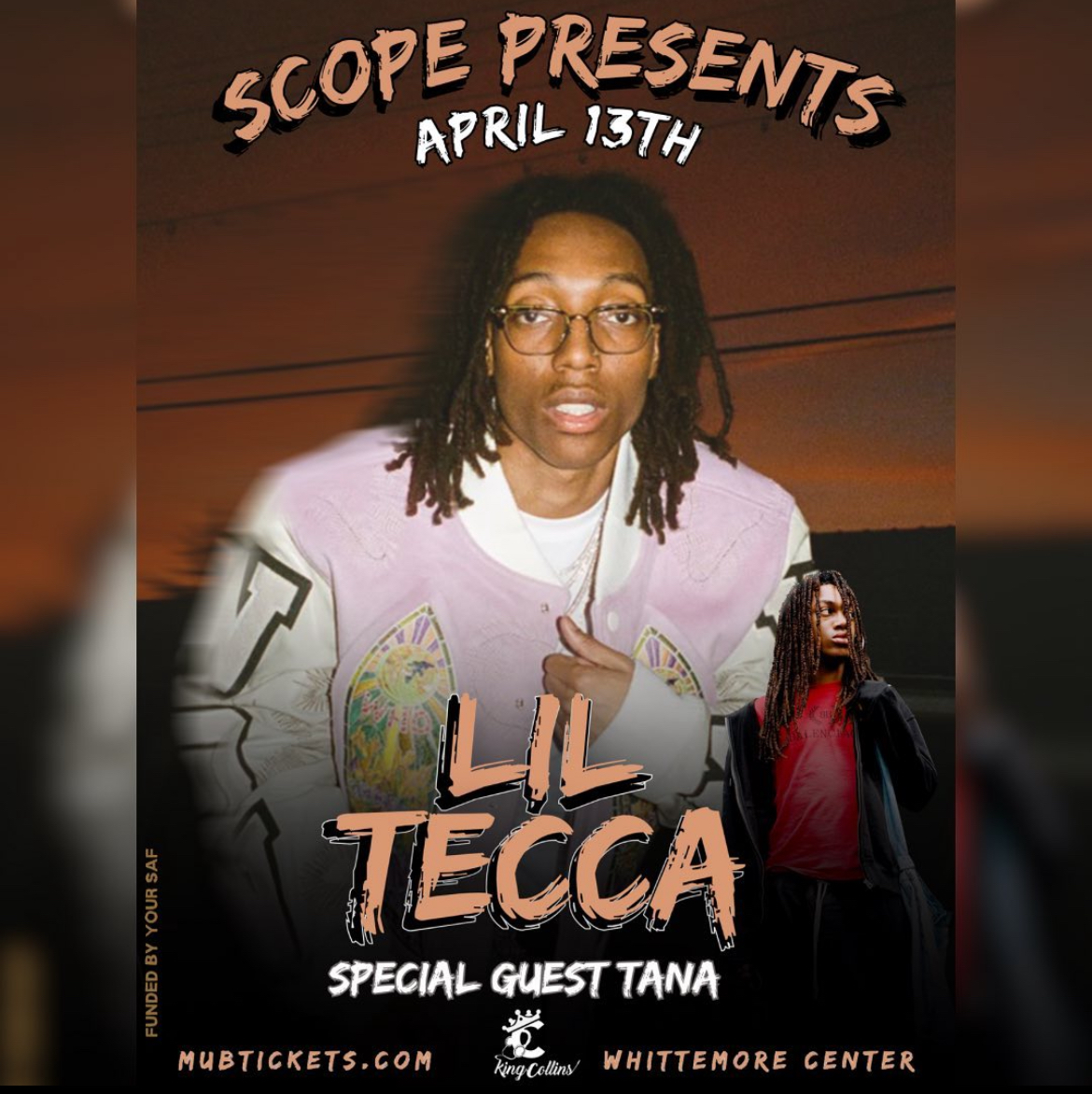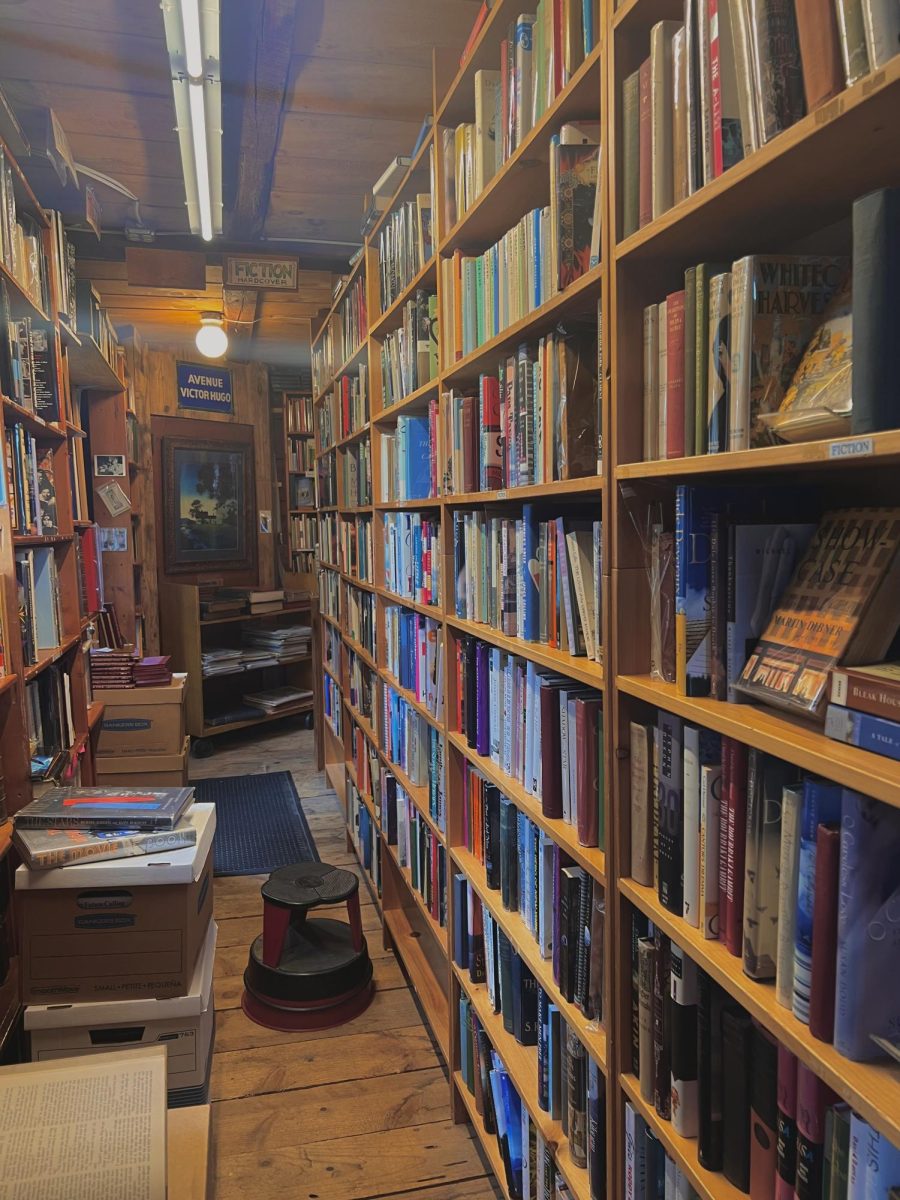In March of 2018, University of New Hampshire (UNH) junior Ethan McClanahan witnessed firsthand the inner workings of a presidential debate when he and fellow student Jake Adams ran for, and ultimately won, the office of student body president (SBP) and vice president, respectively. There, their ticket engaged in a competitive yet ultimately urbane discussion against rival ticket Joseph Ramirez and Thomas Libby as both sides addressed topics such as parking, inclusivity and diversity and student loans, among a host of others.
Nearly two years later, amid extensive talk of the everchanging format and structure of upcoming Democratic primary debates, the now senior political science major sat in the midst of a bustling Student Senate office in the Memorial Union Building as he reflected on the true purpose of an event that has evolved over the years to become a modern political spectacle and guaranteed viewer magnet.
“I watch a debate to get information directly from the candidates instead of…from other people or hear them in person and not from writings they’ve done,” he explained. “…[With] rallies, there’s no interaction from candidate to candidate. Debates are a really good time to watch candidates interact with other candidates and how they kind of deal with being criticized for certain policies that they may agree with, and in a political rally they don’t have that same opportunity because it’s just them with a whole bunch of people who agree with what they’re saying.”
Unlike McClanahan’s situation however, past and forthcoming Democratic debates in the already-heated 2020 race feature a historically high number of liberal candidates ranging from big names like former Vice President Joe Biden and 2016 contender Sen. Bernie Sanders (I-VT) to non-political newcomers like Tom Steyer and Marianne Williamson.
All across the campus and the nation, debates over the effectiveness of events like the upcoming Sept. 12 Democratic debates have frustrated everyone from student and community members viewing the debates, to veterans of such political traditions and the collection of those in academia that study their ups and downs for a living. The historically high candidate count the Democratic party faces in its present fight for the White House has and continues to complicate even the most streamlined and well-managed of debates.
The former SBP, currently serving as a student activity fee chief financial officer, expressed little concern over the still-large field of contenders, despite the expansive field of contenders and the inability for all the candidates to meet face-to-face.
“I think that, you know, a lot of them are going to drop out come February, but I don’t think it’s a problem,” McClanahan said. “I think the more, the merrier, really, because it gives people the opportunity to choose who they really agree with the most.”
Some of his peers, meanwhile, are not as willing to embrace the greater amount of choice; in the case of sophomore history major David Cerullo, he plans on waiting it out until more of the dust settles and the frontrunners are better established.
“…we all know that most of them are going to drop out, we know who the frontrunners are, and until it gets to be less people, if you ask me, the debates are too crowded,” he said. “I don’t think any of the debates really with 12 people going for two nights, I don’t think it’s really conducive. It’s a lot, especially for the general public…watching that many when I know that, like, at least eight of them are going to be dropping out in the next coming months…”
And it’s more than just concerns of viewer fatigue that some debate observers notice in the current Democratic race.
“The more candidates there are in a debate on the stage, the more difficult it is to run the debate. So, it gets a lot more complicated and I think it’s more difficult for moderators to make sure that everyone gets a fair opportunity to present their views,” Dr. Dante Scala, a professor of political science at UNH, said. “And also, it’s difficult from the candidates’ perspective; they feel a lot of pressure to try and do a lot with a small amount of time.”
Scala has taught courses that cover topics like the presidential nomination process, campaigns and elections and political geography and demography. He has also seen all the 2020 debates up to this point, and while he plans to watch the next debate – set for later this month – he has a different way of not just looking at presidential debates but fixing them as well.
His solution in a nutshell: less candidates on the stage at a time. But with a twist.
“In fact, I would go so far as to say…split up the debate into smaller segments and have some one-on-ones on various topics…have Kamala Harris and Pete Buttigieg talk about criminal justice for 10 minutes,” Scala proposed. “That would give, I think the audience, more of a chance to see [and] get a better feel for what the candidates are about.”
When asked how his plan would work, he explained that while not every candidate would get to speak to every issue proposed at the debate, splitting the candidates into sets of two with emphasis on specific topics would, in theory, give each candidate more time to dedicate themselves to the specifics of their views on that issue while engaging in a less combative conversation with one other opponent within similar time frames to current debates. Scala stressed that this setup would allow the event to focus less on the people on stage and more on the topics they talk about.
“…I think what you find in [a standard debate] when you have many candidates on the same stage at the same time is that they all start jockeying for more and more attention, interrupt each other, don’t give each other a chance to speak; then there’s all the time the moderators take up,” he said. “…what we’re doing now I think is stagnant and I don’t know if it’s all that informative because there’s so many candidates for someone to keep track of.”
The professor also suggested lower polling and donor standards for candidates who, unlike people like Steyer, lack the wealth necessary to more efficiently earn their spot on stage, expressing concern that both less wealthy candidates and viewers at home suffer because of what he called “manipulation of the rules.”
Despite his proposals for improving debates, however, Scala added that he believes a prepared speech or a grounded town hall event, such as Saturday’s town hall with Beto O’Rourke and Friday’s policy talk led by Tom Steyer – who just recently met the two-percent poll requirement to attend the next debate, which has thus been split into two nights once again – provide a “less filtered” look into a candidate’s stances and more time to hear out the details compared to a debate.
“A debate is highly filtered, and nowadays, the cable news stations have made them into a form of entertainment. Now, entertainment’s not all bad, but it’s a very strict format that really hems in, and puts restrictions on, candidates,” he explained. “So, I think if you want to learn more about a candidate, you should really take the time to listen to a speech or even a podcast involving the candidates as opposed to these debates.”
Scala acknowledged that both speeches and political rallies place the one candidate at the “center of attention,” but said that a rally is “more for entertainment purposes” and about “trying to rally supporters” compared to a policy speech or debate.
As for viewers like Cerullo, in spite of his frustration with the higher candidate count, he said the debates are not to blame for the number of contenders, all while stressing that debates, amid their flaws, are the best way to see into a candidate’s stances on issues that matter to voters like gun control, Medicare, climate change and more, even if splitting the debates into another two night affair prevents viewers from seeing the whole race in one fell swoop.
“I don’t really like political rallies because it’s just one guy saying what he believes, and if you pay attention you already know what he’s going to say….when you’re at a debate, there’s, like, a third party who’s giving questions, so it might not be the same stuff you always hear and you get to hear that one guy’s ideals challenged…you are actively comparing it to other people,” he said.
More importantly than that, however, Cerullo emphasized that a candidate’s purpose, aside from presenting policy, should be to present authenticity.
“…when a candidate…has a prepared response, it tells me that they’ve put thought into it as opposed to someone who just kind of talks about whatever, and you can tell when someone is talking about whatever,” Cerullo said.
Debate veterans like McClanahan, meanwhile, hope that etiquette and respect for the debate format are respected regardless of the outcome, “so that people aren’t going over their time limit and things like that so that everyone is being treated fairly and that they’re all being given the same opportunity.”
For his part, Scala stressed that, in the end, televised political debates, like most other political events around election season, base their success less on the success of the candidates themselves and more on how many viewers they can get to tune to see how shocking and viral they could get, a major potential concern to viewers looking for clarity in a crowded race unlikely to clear up any time soon.
“I think their [cable news networks] bias is not so much a liberal-or-conservative bias as it is a bias toward entertaining the viewer,” he said. “And that’s not all bad, but I think the bias toward trying to entertain the viewer and attract eyeballs make them treat debates like sporting events; and just like at any sporting event, you try and play up conflict and competition rather than try to inform viewers.
“So…a debate becomes all about, ‘is Joe Biden going to put his foot in his mouth,’ or, ‘is someone going to say something that’s embarrassing,’ right? That’s going to make the story the day after,” he continued. “That’s good for entertainment value, but I don’t know how much that tells us about whether that person would be a good president or not.”


















